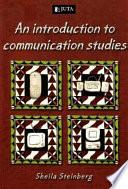
Komunikasi Pemasaran
Buku “Komunikasi Pemasaran” ini menyediakan ilmu pengetahuan yang bisa berkontribusi untuk kesuksesan seorang enterpreneur melalui pengembangan proses komunikasi pemasaran suatu produk kepada target konsumen. Buku ini menyajikan beberapa konsep, proses dan strategi komunikasi pemasaran yang efektif. Secara detil buku ini menjelaskan tentang: Konsep dan Proses Komunikasi Pemasaran Komunikasi Pemasaran dalam Perspektif Konsumen Isu Lingkungan, Peraturan dan Etika Komunikasi Pemasaran Persuasi dalam Komunikasi Pemasaran Manajemen Periklanan: tinjauan umum Strategi Kreatif Iklan Analisis Media Periklanan Manajemen Promosi Penjualan Promosi Penjualan: Berorientasi Perdagangan Promosi Penjualan: Berorientasi Konsumen Penjualan Personal Hubungan Masyarakat Pemasaran Sponsor
- ISBN 13 : 6236840741
- ISBN 10 : 9786236840740
- Judul : Komunikasi Pemasaran
- Pengarang : Tasnim Tasnim, Andriasan Sudarso, Martono Anggusti, Risma Nurhaini Munthe, Rahman Tanjung, Nina Mistriani, Yuliyanto Budi Setiawan, Sudung Simatupang, Ovi Hamidah Sari, Liharman Saragih, Bonaraja Purba, Maya Sari, Idah Kusuma Dewi, Andriasan Sudarso, Martono Anggusti, Risma Nurhaini Munthe, Rahman Tanjung, Nina Mistriani, Yuliyanto Budi Setiawan, Sudung Simatupang, Ovi Hamidah Sari, Liharman Saragih, Bonaraja Purba, Maya Sari, Idah Kusuma Dewi,
- Kategori : Antiques & Collectibles
- Penerbit : Yayasan Kita Menulis
- Bahasa : id
- Tahun : 2021
- Halaman : 220
- Google Book : https://play.google.com/store/books/details?id=kR4fEAAAQBAJ&source=gbs_api
-
Ketersediaan :
Buku “Komunikasi Pemasaran” ini menyediakan ilmu pengetahuan yang bisa berkontribusi untuk kesuksesan seorang enterpreneur melalui pengembangan proses komunikasi pemasaran suatu produk kepada target konsumen.









